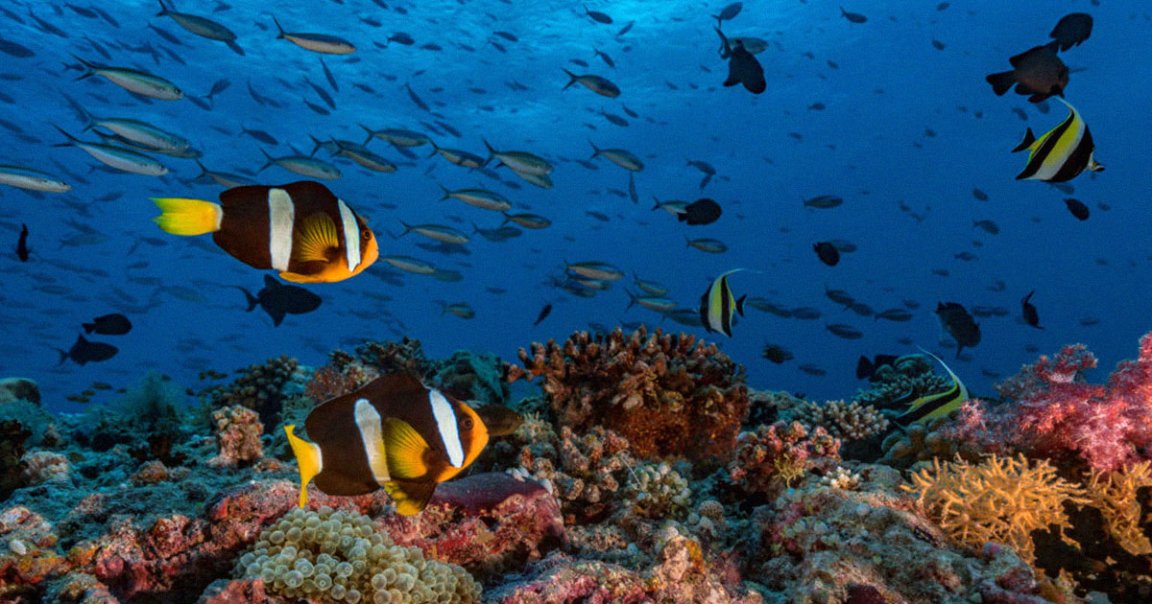
Researchers have found that playing the sounds of happy corals through underwater speakers could allow degrading coral reefs to regain lost vitality.
A team of scientists played recordings of healthy corals to a struggling reef off the coast of the US Virgin Islands, The Guardian reports, finding that coral larvae were up to seven times more likely to settle there afterward.
“We’re hoping this may be something we can combine with other efforts to put the good stuff back on the reef,” Woods Hole Oceanographic Institution in Massachusetts researcher Nadège Aoki, lead author of a paper published in the journal Royal Society Open Science, told the British newspaper. “You could leave a speaker out for a certain amount of time and it could be attracting not just coral larvae but fish back to the reef.”

According to a 2021 study, the world’s coral reef cover had approximately halved since the 1950s, with the diversity of species on reefs dropping by more than 60 percent — the result of a lethal mix of the effects of climate change, overfishing, pollution, and habitat destruction.
While environmentalists are hard at work to repopulate reefs, they remain in a precarious state. Previous efforts have involved, for instance, installing specially-made steel frames to act as a breeding ground.
Nonetheless, researchers have been helplessly watching as some of the world’s biggest coral reefs are bleaching, or turning white, a sign that they are expelling algae living in their tissues.
In an effort to attract new coral larvae to existing reefs, Aoki and her colleagues set up speakers at three reefs off the coast of Saint John in the US Virgin Islands, measuring how many larvae settled on special containers made up of rock-like ceramic nearby.
The researchers only played sounds at one of the sites and used the other two, which included a degraded and a healthier reef, as control sites.
Coral larvae use ocean currents to swim around freely, but once they find a place to settle, they become permanently fixed to any given spot.
Researchers have long suspected that the sounds of healthy reefs may actually serve as a beckoning call for these larvae.
Now, these new results speak for themselves. The team found that larvae were anywhere from 1.7 to seven times more likely to settle at the reef where the soundscape was being “enriched.” Settlement rates also decreased depending on the distance from the speaker, supporting the working hypothesis.
“These results reveal that acoustic enrichment can facilitate coral larval settlement at reasonable distances, offering a promising new method for scientists, managers and restoration practitioners to rebuild coral reefs,” the researchers write in their paper.
But before we turn the world’s coral reefs into concert venues for coral larvae, Aoki was quick to acknowledge that it isn’t a miracle cure.
“You have to be very thoughtful about the application of this technology,” she told The Guardian. “You don’t want to encourage them to settle where they will die. It really has to be a multi-pronged effort with steps in place to ensure the survival of these corals and their growth over time.”
“Coral reefs are the first marine ecosystems we could lose to climate change, which means they are also the first we can save,” University of Bristol marine biologist Steve Simpson, who has been studying the idea for 20 years, added. “If we can save reefs, we can save anything.”
More on coral reefs: Steel Frame Brings Completely Dead Coral Reef Back to Life